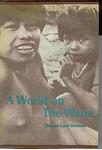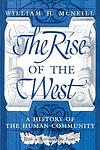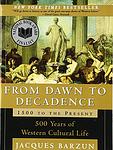The Greatest "European History, Asian History" Books of All Time
Click to learn how this list is calculated.
This list represents a comprehensive and trusted collection of the greatest books. Developed through a specialized algorithm, it brings together 300 'best of' book lists to form a definitive guide to the world's most acclaimed books. For those interested in how these books are chosen, additional details can be found on the rankings page.
Genres
European History is a category of books that focuses on the historical events, people, and cultures of Europe. It covers a wide range of topics, including the ancient civilizations of Greece and Rome, the Middle Ages, the Renaissance, the Enlightenment, and the modern era. This category of books explores the political, social, economic, and cultural developments that have shaped Europe over the centuries, from the rise and fall of empires to the impact of wars and revolutions. It provides readers with a deeper understanding of the rich and complex history of Europe and its influence on the world.
Asian History is a category of books that focuses on the historical events, cultures, and societies of Asia. This category includes books that cover a wide range of topics, including the ancient civilizations of China, Japan, and India, the rise and fall of empires, the impact of colonialism, and the modernization of Asian countries. It also includes books that explore the social, political, and economic changes that have shaped the region over time. Overall, Asian History provides readers with a comprehensive understanding of the rich and diverse history of Asia.
Countries
Date Range
Reading Statistics
Click the button below to see how many of these books you've read!
Download
If you're interested in downloading this list as a CSV file for use in a spreadsheet application, you can easily do so by clicking the button below. Please note that to ensure a manageable file size and faster download, the CSV will include details for only the first 500 books.
Download-
1. A Study of History by Arnold J. Toynbee
"A Study of History" is an extensive 12-volume universal history, exploring the development and decay of world civilizations throughout the ages. The author proposes that civilizations rise and fall based on their responses to challenges, both physical and social. The book also puts forth the idea that religions play a crucial role in the rise of civilizations and that the failure of a civilization's creative power can lead to its decline. The work is renowned for its scholarly depth and its controversial theories about the cyclical nature of history.
-
2. Sapiens: A Brief History of Humankind by Yuval Noah Harari
This book provides a comprehensive exploration of the history of the human species, tracing back from the earliest forms of Homo Sapiens to the modern day. It delves into evolutionary biology, the development of cultures and societies, and the rise of major ideologies and technologies. The book also discusses the future of the species, posing thought-provoking questions about our roles and responsibilities in a rapidly changing world.
-
3. The Rise And Fall Of The Great Powers by Paul Kennedy
The book in question offers a comprehensive analysis of the economic and military factors that have shaped the relative power of nations from the 16th century to the late 20th century. It argues that the rise and fall of great powers are closely linked to their ability to manage economic resources and maintain military strength. The author examines the patterns of history to show how the overextension of an empire's resources often leads to decline, and suggests that managing the balance between wealth and power is crucial for the longevity of a great power. The book also provides insights into the potential future of global power dynamics by considering the implications of these historical patterns for contemporary superpowers.
-
4. A World On The Wane by Claude Lévi-Strauss
The book is a reflective account of an anthropologist's journey through the Amazon Basin, documenting the lives and customs of indigenous tribes at a time when their traditional ways were increasingly threatened by the encroachment of modern civilization. Through a series of vivid observations and analyses, the author explores the complex social structures, myths, and rituals of these societies, while also contemplating the impact of Western influence on their survival. The narrative serves as both a poignant chronicle of disappearing cultures and a critique of the forces of colonialism and globalization that contribute to the erosion of human diversity and heritage.
-
5. The Rise of the West by William H. McNeill
"The Rise of the West" is a comprehensive historical narrative that explores the development of Western civilization from the early stages of human history to the 20th century. The book provides a detailed analysis of various civilizations around the world, their interactions, and the resulting cultural exchanges that have shaped the modern world. It also discusses the significant factors, such as technological advancements, religious transformations, and political changes, that have contributed to the West's ascendancy.
-
6. From Dawn To Decadence : 1500 To The Present by Jacques Barzun
This book offers a sweeping overview of Western cultural life from the Renaissance to the early 21st century. It delves into the pivotal events, ideas, and personalities that have shaped the modern world, exploring how cultural movements and the evolution of thought have influenced society's development. The narrative weaves through various disciplines, including art, music, politics, and science, to provide a comprehensive understanding of the forces that have led to both the achievements and challenges of Western civilization. Through a rich tapestry of historical analysis, the work invites readers to reflect on the complexity and dynamism of the human experience over the last five centuries.
-
7. The Great Divergence by Kenneth Pomeranz
This book challenges traditional views on the rise of the Western world's economic dominance, arguing that until the late 18th century, parts of Europe, China, Japan, and the Islamic world were similarly advanced. The author contends that geographical and ecological factors, rather than inherent cultural or technological superiority, played a crucial role in Europe's industrialization. Specifically, the availability of coal in Britain and the exploitation of the New World's resources are highlighted as pivotal in creating the "Great Divergence" between the West and the rest of the world. Through this lens, the book reevaluates the roots of global inequality and the factors that have shaped the modern economic landscape.
-
8. The Ordeal Of Elizabeth Marsh: A Woman In World History. by Linda Colley
"The Ordeal of Elizabeth Marsh" by Linda Colley tells the story of a remarkable woman who lived in the 18th century and traveled the world, experiencing various cultures and societies. Elizabeth Marsh was born into a wealthy family in England but faced many challenges throughout her life, including being kidnapped in Morocco and facing financial ruin. Colley uses Marsh's story to explore themes of gender, power, and imperialism, and to shed light on the experiences of women in world history.
-
9. A History of the World in 100 Objects by Neil MacGregor
This book offers a unique perspective on world history, telling the story of humanity through the examination of 100 man-made objects. The author, a museum director, uses items from the British Museum, ranging from a 2 million-year-old Olduvai stone cutting tool to a contemporary credit card, to explore various themes such as trade, religion, art, science, and politics. The book provides a fascinating lens through which to view the evolution of human civilization.
-
10. Empire Of Cotton: A Global History by Sven Beckert
"Empire of Cotton" by Sven Beckert is a comprehensive global history of cotton, exploring its impact on the world economy, politics, and society from the 18th century to the present day. Beckert argues that cotton played a crucial role in the development of capitalism, colonialism, and imperialism, and that its production and trade were intimately linked to the exploitation of labor, the growth of slavery, and the rise of industrialization. The book offers a fascinating and thought-provoking perspective on the complex and often violent history of cotton and its enduring legacy in the modern world.
-
11. The Great Leveler : Violence And The History Of Inequality From The Stone Age To The Twenty First Century by Walter Scheidel
This book delves into the historical patterns of inequality, arguing that significant reductions in inequality have only ever been brought about by cataclysmic events, which the author terms as the "Four Horsemen": war, revolution, state collapse, and plague. Through a comprehensive examination of societal structures from the Stone Age to the modern era, it presents a compelling case that peaceful reforms have rarely led to lasting decreases in inequality. The work challenges readers to confront the uncomfortable reality that significant improvements in equality have often been forged in the crucible of immense human suffering, thereby questioning the prospects for achieving future equality without such extreme catalysts.
-
12. Crusade and Jihad: Islam and the Christian World by Bassam Tibi
This book explores the historical, ideological, and political aspects of the Crusades and Jihad, comparing and contrasting the two. It delves into the origins and evolution of the Crusades and Jihad, their impact on Christian and Islamic societies, and their relevance in today's world. The author also examines the role of religion in conflicts and the use of religious ideologies for political purposes, providing a comprehensive understanding of these complex issues.
Reading Statistics
Click the button below to see how many of these books you've read!
Download
If you're interested in downloading this list as a CSV file for use in a spreadsheet application, you can easily do so by clicking the button below. Please note that to ensure a manageable file size and faster download, the CSV will include details for only the first 500 books.
Download










